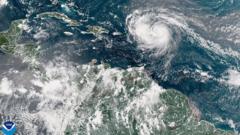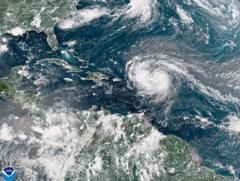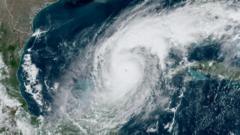In a significant policy shift, the U.S. Department of Defense (DoD) has temporarily extended the availability of vital satellite data, crucial for accurate hurricane forecasting, until July 31. Initially scheduled to be discontinued on June 30, the extension comes in response to a request from NASA amidst growing concerns over a “significant cybersecurity risk.”
Last week, the National Oceanic and Atmospheric Administration (NOAA) had informed researchers and forecasters that satellite data collected from three satellites jointly operated with the DoD would be unavailable, prompting widespread alarm within the meteorological community about potential impacts on public safety.
Experts voiced their confusion and concern over the abrupt decision to suspend access. They reiterated that the loss of this data would lead to diminished accuracy in hurricane forecasts, significantly elevating the risks to life and property, particularly as the peak months of hurricane season approach in August, September, and October.
Michael Lowry, a hurricane expert and former official at the National Hurricane Center, emphasized the seriousness of the sudden data termination. “The extension of this crucial data through July by direct NASA order speaks to how blindsided government forecasters were,” he stated, underscoring the implications for the upcoming hurricane season.
The impact of this data suspension is not limited to hurricane forecasting. The services canceled are also essential for ongoing research into sea ice changes in the polar regions since the 1970s, as noted by Sharon Stammerjohn from the University of Colorado Boulder. She explained that the data allows scientists to observe seasonal changes in polar sea ice, which plays a vital role in moderating global temperatures.
While some alternate satellite services, such as those from the European Space Agency and Japan’s Aerospace Exploration Agency, may assist in filling the gap, the variations in sensor calibration and data resolution could present challenges, potentially complicating the analysis of critical climate trends.
Experts continue to advocate for the importance of maintaining access to reliable data sources, as they play an integral role in understanding and responding to the repercussions of climate change on a global scale.




















